Campaigning for human rights at the UN
Gertrude Oforiwa Fefoame, Sightsavers, Ghana
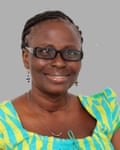
When I saw I was nominated to be elected on to the UN committee for the rights of persons with disabilities, I felt so proud. Though I’m disappointed not to be elected, I’ve learned so much from the process.
As a young girl in Ghana I started having a progressive sight loss. I had to write my exams with a small hand magnifying lens that could take just three letters at a time. Nobody knew how the future was going to be. I went to a school for the blind, wanting to become a teacher for students with special educational needs. But as soon as I entered the school, people said: “You are at a school for the blind, what a pity, you are doomed!” For myself, I didn’t see a change. I didn’t think I had become a different person.
Now there is so much hope around. I’m more motivated, more energised as each day goes by. In Ghana there is now a minister who has a disability, but other activists are not prioritising the disability issue enough. Why do we have to remind people all the time that there is a reasonable percentage of the community who have disability? AL
Supporting people with albinism
Peter Ogik, chair of the Source of the Nile Union of Persons with Albinism, Uganda

There is much stigma attached to albinism. I was was the first person to be born with albinism in our family, and in the whole community. Most people didn’t want to be associated with us because they used to say I was a curse. It became a hard life.
But I went to university and tried to show how people with albinism can make change in communities, and how they can look after their skins (98% of people with albinism have skin cancer and die before reaching age of 40). I wanted to become an activist for the voiceless and show the potential of people with disabilities.
I know this work is not easy, but what gives me hope is that at least we have started changing their attitudes. I do awareness-raising through music, entertainment, documentaries and I’m organising an international albinism event to try washing away the myth. After all, it’s just a skin that is missing the colour, but we have the potential to do everything. NL
Advocating for the rights of people with disabilities
Silvia Quan, lawyer and activist, Guatemala

There are still many challenges for disabled people in Guatemala. I faced a lot of discrimination when I acquired my visual impairment as a student in the early 1990s. I tried several times to find a job, and I was always rejected because when I showed up for the interview people just saw that I was blind and would not even try to interview me. I was so frustrated and thought people with disabilities would be facing similar and even worse types of discrimination. That’s why I started getting involved in human rights.
Guatemala is very poor country, and services are not widespread or good quality. I got involved in the disability field more than 20 years ago, but when it comes to inclusion we are almost at the same spot. Dealing day to day with human rights violations and trying to change people’s lives by having those violations be subjected to the justice system really is something I feel very satisfied by. Even if I changed one or two lives I feel that was important. I would like people with disabilities not seen with pity, but as equal participants in society. NL
Challenging employer discrimination in Kenya
Fred Ouko, Action Network for the Disabled

Changing perceptions in society takes a lot of time, and it requires you to form allies. At Action Network for the Disabled, we go directly to human resource managers and explain different types of disability to them so that they can be aware. That works because it is mostly lack of information that makes people not hire people with disabilities.
People were saying that it’s hard to find individuals with disabilities who are qualified, so we took this as a challenge and have now formed an online portal, Riziki Source, where persons with disabilities register and state their qualifications and which type of a job they are looking for. On the same portal an employer can sign in and we can match them with three or four CVs.
There is a tendency for people to think that people with disabilities are looking for charity, that we always want to be helped. But that’s really not the case. People just want to be given the same opportunities as their sisters and brothers. AL
Getting young disabled people into work
Bahati Satir Omar, Uwezo, Rwanda
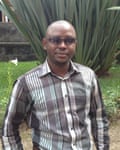
I run an organisation that empowers children with disabilities in Rwanda called Uwezo Youth Empowerment.
I was graduating from high school and thought I would become a doctor, but all of a sudden I lost my sight and I couldn’t join university immediately. I thought that I would end up begging on the street. But then I went to school for six months to learn how to read and write braille. In one year I was up on my feet again and then I learned about blind life and how I could help. I started different events around the country and in the region on disability rights awareness and promotion.
Our first project was supporting youth with disabilities to secure employment through six-month paid internships. We have put around 45 youth with disabilities into internships. Today, in only a year and a half, 20 of them are employed.
As an activist, I feel there is much need to be done in mainstreaming disability in all national, regional and global development programmes by setting clear and financed disability related indicators. All our hopes are now directed to the SDGs trusting that no one will be left behind. AL
Providing support for victims of conflict
Firoz Alizada, International Campaign to Ban Landmines – Cluster Munition Coalition, born in Afghanistan, based in Geneva
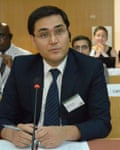
In many conflict, or post-conflict countries, people with disabilities are seen as a burden to their families and society. That was very extreme in Afghanistan during the Taliban regime. I stepped on a landmine and lost my legs when I was 13. It took me about six months to recover, and I then started to learn about disabilities – the rights, the services – and I’ve been involved in advocating for the rights for people with disabilities ever since.
I used to face discrimination – for example, I went to university and one of the principles of Kabul university told me: “You’re disabled, why would you like to study?” That was tough.
But in 2007 I founded an NGO called Afghan Landmine Survivors’ Organisation with a couple of friends. This peer-support group was the only association of people with disabilities in Afghanistan. I wanted to provide peer support, because I’m convinced it’s one of the best ways to provide psychosocial support for people with disabilities. Hundreds of people have been supported so far.
My hope is that needs and rights of disabled people should be counted as one of the national priorities. That will slowly change the behaviour and perception of all people with disabilities in Afghanistan. NL
Pushing for inclusive education
Yetnebersh Nigussie, Light for the World, Ethiopia

I’ve worked on a number of rights issues and now, with Light for the World, I advocate and promote the rights of people with disabilities, including inclusive education. Once children get the right to education, they can demand the right to employment, transportation and other basic rights.
I lost my eyesight when I was five. Being blind in a poor and rural part of Ethiopia was not without its challenges, but I also think it was my opportunity. I joined a special boarding school for the blind that was about 800km away from home, before joining a mainstream school when I was 11 years old.
This world belongs to all of us and we all deserve to be treated equally. Children with disabilities aren’t the only ones who benefit from inclusive education, everyone in the classroom does.
There are a lot of assumptions about people with disabilities; many people think about the one disability and forget about the 99 abilities a disabled person has. But in my life, I have seen change happening. It gives me hope that people understand that equality doesn’t mean sameness. I think the more challenges we have, the more innovative minds there will be to tackle them better. I believe that one day we will have a world for all. KP
Raising awareness about deafblind people in India
Zamir Dhale, advocacy officer, Sense International, India

It’s a shame to think that the outside world will take many more years to ensure that information is accessible for deafblind people. Technology is the key, and I use my computer and mobile phone to communicate all over the world. But here in India new challenges keep coming up and all too often changing technology is not accessible. For me, understanding anything has been much more difficult because of a lack of information in an accessible format. Tactile sign language is essential and all my colleagues have learned it to be able to communicate with me.
It’s frustrating that our government’s response to our advocacy has not been very encouraging. There are no initiatives to create awareness about deafblindness, and we still do not have any government data on how many deafblind people are in our country. We have been successful to ensure deafblindness is included as a distinct disability in the draft national disability bill, but it was drafted in 2011 and we still await its fate in parliament.
My achievement in life gives me hope for all other deafblind friends. I want to encourage them through my experience of overcoming challenges to get recognised, communicate, participate and contribute. We deserve what everybody else is entitled to and we must raise our voice to ensure that. AL
Changing mindsets in India
Shilpi Kapoor, BarrierBreak, India
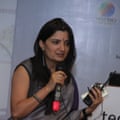
A turning point in my career was when I realised that my boss, who I had only met virtually, was paralysed all the time I had known him. That made me think about how I could use technology to benefit people with disabilities.
The most challenging part so far has been working with the government of India to ensure that they understand the need. It is an ongoing battle. The proudest moment for me was when Maharashtra state made it compulsory for every department to have a scheme for procuring disability access products and websites should be disabled friendly.
The mindset of the people is something that frustrates me. We have about 100 million people with disabilities in India but the industry hasn’t yet accepted accessibility as a solution. Most companies only cater to the needs if it’s a mandate. We need to build an inclusive world where every person has access to everything. People need to change their attitudes. AL
Fighting for inclusivity on a global scale
Mosharraf Hossain, director of global policy at ADD International, born in Bangladesh, based in the UK
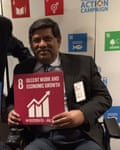
There is a social stigma in Bangladesh that creates a lot of problems for all people with disabilities, especially children.
I completed my master’s in economics and then applied for public service jobs, but I was denied work because in Bangladesh people with disabilities were not allowed in the service.
For ADD International in Bangladesh, I worked with people with disabilities in rural areas, visited their homes to try to understand their stigma, and then we created a programme to change these attitudes. We worked with the government to ratify the convention of the rights of persons with disabilities, and that was a turning point at a national and local level.
Now the SDGs have been adapted to be inclusive, so in the next 15 years all will change – only 10% of children with disabilities were enrolled in school during the MDG period. I want children with disabilities to go to schools that are accessible, with teachers who are properly trained, so in the future they can be educated and treated well at every level of society, and their disability will not be a factor of their lives. NL
This week we’re focusing on the issue of disability rights around the world. Please get in touch with your experiences, comments and stories; email us at globaldevpros@theguardian.com, with disability rights in the subject line, or add your experiences here.
Join our community of development professionals and humanitarians. Follow @GuardianGDP on Twitter. Join the conversation with the hashtag #DisabilityRights

Comments (…)
Sign in or create your Guardian account to join the discussion